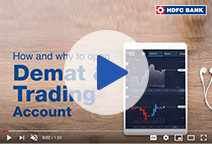You've Been Logged Out
For security reasons, we have logged you out of HDFC Bank NetBanking. We do this when you refresh/move back on the browser on any NetBanking page.
OK- Home
- PAY Cards, Bill Pay
- Money Transfer
- To Other Account
- To Own Account
- UPI (Instant Mobile Money Transfer)
- IMPS (Immediate Payment 24 * 7)
- RTGS (Available 24 * 7)
- NEFT (Available 24 * 7)
- RemitNow Foreign Outward Remittance
- Remittance (International Money Transfers )
- Religious Offering's & Donation
- Visa CardPay
- RemitNow (For Expat)
- Forex Services for students
- Pay your overseas education fees with Flywire
- ESOP Remittances
- Cards
- Bill Payments
- Recharge
- Payment Solutions
- Money Transfer
- SAVE Accounts, Deposits
- INVEST Bonds, Mutual Funds
- BORROW Loans, EMI
- INSURE Cover, Protect
- OFFERS Offers, Discounts
- My Mailbox
- My Profile
- Home
- PAY Cards, Bill Pay
- Money Transfer
- To Other Account
- To Own Account
- UPI (Instant Mobile Money Transfer)
- IMPS (Immediate Payment 24 * 7)
- RTGS (Available 24 * 7)
- NEFT (Available 24 * 7)
- RemitNow Foreign Outward Remittance
- Remittance (International Money Transfers )
- Religious Offering's & Donation
- Visa CardPay
- RemitNow (For Expat)
- Forex Services for students
- Pay your overseas education fees with Flywire
- ESOP Remittances
- Cards
- Bill Payments
- Recharge
- Payment Solutions
- Money Transfer
- SAVE Accounts, Deposits
- INVEST Bonds, Mutual Funds
- BORROW Loans, EMI
- INSURE Cover, Protect
- OFFERS Offers, Discounts
- My Mailbox
- My Profile
- Home
- PAY Cards, Bill Pay

- Money Transfer
- To Other Account
- To Own Account
- UPI (Instant Mobile Money Transfer)
- IMPS (Immediate Payment 24 * 7)
- RTGS (Available 24 * 7)
- NEFT (Available 24 * 7)
- RemitNow Foreign Outward Remittance
- Remittance (International Money Transfers )
- Religious Offering's & Donation
- Visa CardPay
- RemitNow (For Expat)
- Forex Services for students
- Pay your overseas education fees with Flywire
- ESOP Remittances
- SAVE Accounts, Deposits
- INVEST Bonds, Mutual Funds
- BORROW Loans, EMI
- INSURE Cover, Protect
- OFFERS Offers, Discounts
- My Mailbox
- My Profile
- Personal
- Resources
- Learning Centre
- ThisPageDoesNotCntainIconInvest
- How does a Demat Account Work
How does a Demat Account work?
Introduced in 1996 on the NSE, the Demat system today works to facilitate trade and holding of financial instruments like Equity, Bonds, Government Securities, Exchange Traded Funds (ETFs), Mutual Funds, Insurance, etc.
However, the working of a Demat Account is dependent on two other accounts –
- Your trading account, which is different from a Demat Account as its only role is to hold money for trading purposes
- Your bank account which is linked to the Demat & Trading accounts. You have to transfer money to your trading account from this bank account to buy and sell, the money is received in the same bank account.
Now there are several parties involved in Demat Account transaction -
- Depositaries that handle Demat Accounts. India has two depositaries –
- Central Depositary Services Limited (CDSL), which functions under BSE
- National Securities Depositary Limited (NSDL), which operates under NSE
- Depository participants (agents of depositories) like authorized stock broking firm, bank or the financial institution with whom you hold Demat and trading accounts
- Clearance houses that take care of debiting and crediting shares in the sellers and buyers’ accounts. The two main clearance houses in the country are –
- National Securities Clearing Corporation Ltd (NSCCL) under NSE
- Indian Clearing Corporation Ltd (ICCL) under BSE
- Stock exchange, where trades take place, transactions are regulated and later executed by clearance houses
Working of a Demat Account:
First of all, it is important to note that along with a Demat Account, you get a linked trading account as well, with a unique login ID and password. This is used to buy/sell shares. A Demat Account is then used to hold the bought shares.
So when you want to buy or sell a particular share, you need to login to your trading account, which is also linked to your bank account. When a ‘buy’ or ‘sell’ request is put in the trading account for a particular stock, with other details, your Depository participant (DP) then forwards this to the stock exchange immediately.
In case, the order is to ‘buy’, the stock exchange then finds a seller who wants to sell the same quantity of shares and sends an order to clearance houses to debit the particular number of shares from the seller’s Demat Account and credit it to the buyer’s Demat Account. And this is how a single trade in the stock market takes place.
The buyer and seller can hold Demat Accounts with DPs belonging to different depositories.
Looking to open a Demat Account? Click to get started!
Read more on the features of the Demat Account here.
* The information provided in this article is generic in nature and for informational purposes only. It is not a substitute for specific advice in your own circumstances.
What’s New?
-
HDFC Bank organizes Saveathon to create awareness on water scarcity Test
-
HDFC Bank conducts the 11th edition of its nationwide 'Blood Donation Drive'
-
Sustainable Livelihood Initiative by HDFC Bank is helping empower women across villages in Madhya Pradesh
-
HDFC Bank's 'Blood Donation Drive' on Friday, Dec 8
-
HDFC Bank MD Aditya Puri on Fortune Businessperson of the year list
